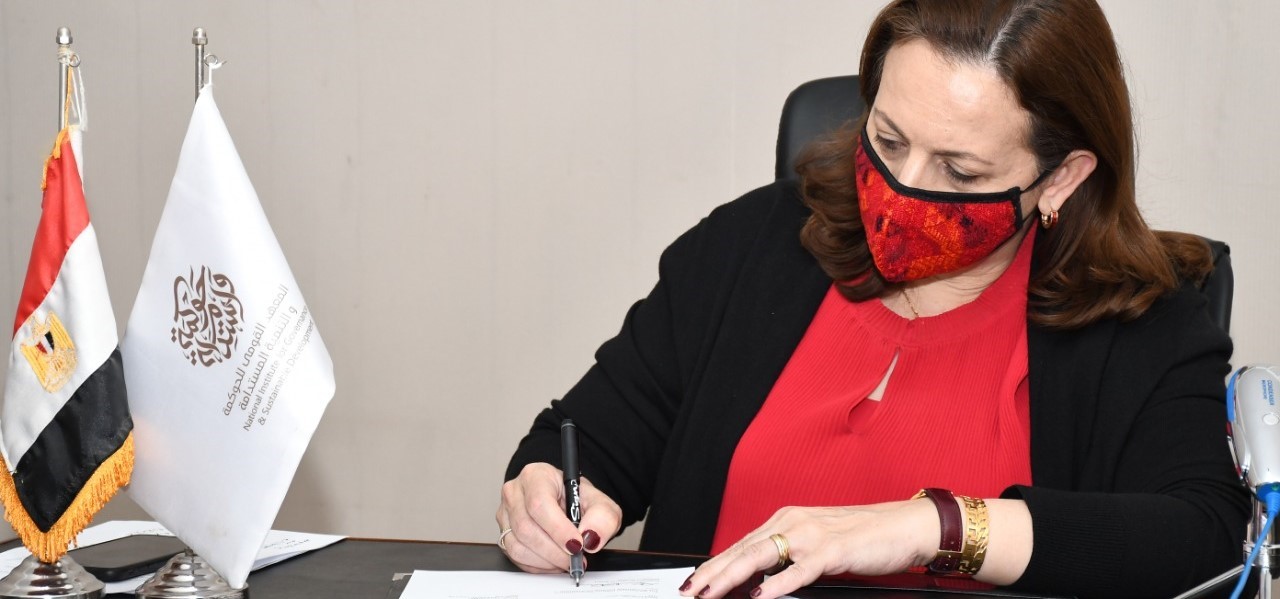Egypt’s NIGSD signs a cooperation protocol with (GIZ) to use the Atingi platform

08 April 2021
The National Institute for Governance and Sustainable Development (NIGSD) signed a cooperation protocol with the Global Project for Digital Transformation and the Program for Promoting Reform Initiatives in Public Administration of the German Agency for International Cooperation (GIZ), regarding the promotion of capacity building initiatives through digital learning in Egypt, and use Subscriber to the digital infrastructure of the Atingi platform.
Dr. Sherif El-Sherif, Executive Director of the National Institute for Governance and Sustainable Development, announced that the institute is, according to the protocol, the only body in Egypt entrusted with raising training programs, using the Atingi platform, and trading programs in it at the African level.
El-Sherif explained that the platform is open to all groups on the African continent, as the trainee receives an electronic certificate upon completion of the training program, stressing that the institute was chosen by Atingi as an exclusive partner from Egypt to expand training opportunities throughout Egypt and the African continent.
El-Sherif explained that the cooperation aims to facilitate access to training offers to provide technical and organizational skills in partner institutions in Egypt, in addition to implementing digital learning programs and linking them to current analog traditional training, thus enhancing the success of comprehensive learning for the target group and greatly strengthening human resource management throughout Public Administration.
El-Sherif added that the essential and integrated part of the cooperation was the joint use of the digital infrastructure of the Atingi platform, the learning environment, and all the tools that were already developed by the global project for digital transformation presented on the Atingi platform.
It is worth noting that Atingi is a digital learning platform that allows access to high-quality digital educational content anytime, anywhere, and following data protection regulations. Attended was developed by a team of education and digital experts as part of the global project "Africa Cloud".
The National Institute for Governance and Sustainable Development (NIGSD) is the exclusive user of the platform, in the implementation of the “Smart Africa” initiative, which was established by Egyptian President Abdel Fattah El-Sisi upon assuming the presidency of the African Union.
It is noteworthy that, according to the protocol, the National Institute for Governance and Sustainable Development (NIGSD) and the Program for Promoting Reform Initiatives in Public Administration of the German Agency for International Cooperation is concerned with developing prototypes and developing digital learning materials for the Egyptian public administration sector for the future scalable expansion of the products and services provided.
The protocol was signed by Dr. Sherifa El-Sherif, Executive Director of the Institute, for the National Institute for Governance and Sustainable Development, and for the German Agency for International Cooperation (GIZ) Volker Lichtenthiler, Director of the Digital Education Project at the Atingi platform, Maneja Gardesi, Director of the Program for Promoting Reform Initiatives in Public Administration, in the presence of Professor Nabil Fouad Dr. Dina Talaat, General Manager of Business Development and Human Resources, General Manager, Career Path Unit Development.









